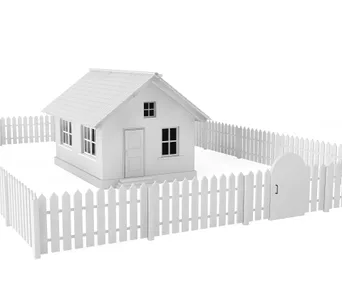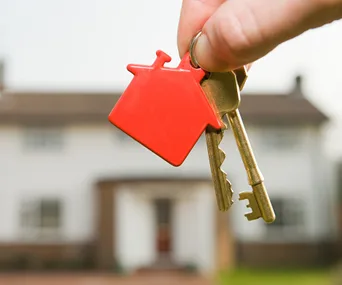Most of us buy a home first, before we buy an investment property, because we want to live in a place of our own. Fair enough, but if you are serious about growing your wealth you should aim to increase the value of your home as quickly as possible. And throw every spare dollar into paying down your home loan, which is non-tax-deductible debt, so you build up your equity.
Equity is the difference between the value of your home and the amount you owe the bank. For example, married couple Jed and Nicola have their home valued at $600,000. The loan balance is $322,000 so the couple’s equity is $278,000.
The faster you grow the equity you have in the family home or first investment property, the earlier you can access it to invest. You might buy a second property (and then a third and fourth) or you may prefer to build a portfolio of shares or funds.
Some people are prepared to live in rental accommodation to start building wealth before they buy a family home, using the equity in their first property to help them build a portfolio of investment properties.
Let’s say Jed and Nicola bought their home three years ago for $500,000. They borrowed $375,000 at 5.9 per cent over 10 years, because tight budgeting meant they had the capacity to meet the fortnightly repayments of $2077. Half the increase in the home’s value is due to capital growth, but the other half is due to some simple repairs and maintenance, such as repainting and upgrading fixtures and fittings.
So how can they put their equity to work without taking on too much risk? First they need to work out their usable equity. To do this they multiple the value of their home by 80 per cent (to avoid paying lenders mortgage insurance on their home mortgage), equating to $480,000, and then deduct the outstanding debt of $322,000, giving them $158,000.
They could use this to buy an investment property, setting up a facility to release the equity, which is often done by establishing a line of credit that can then be drawn down as needed. This can be used to fund a 20 per cent deposit on an investment property (again avoiding expensive lenders mortgage insurance, which protects the lender, not the borrower) and also to pay for the other costs, including stamp duty (roughly another 5 per cent).
With $158,000 equity, the couple could afford to buy property costing up to $632,000, covering the 25 per cent needed for a deposit and costs.
Yet to mitigate risk, it would be wise to leave some of the facility as a buffer against possible events, such as the property being without a tenant for a time.
The couple could also consider buying more than one property or spreading their investments among property and shares.

Selecting the right investments is the key to making this strategy work. If residential property is your preference, you have to choose between a house and unit, pick a location and decide how much to spend.
Do you invest close to home or consider a different area state? Doing that, you could choose markets that are on the rise, such as Brisbane, rather than ones that may be more fully priced, as Sydney appears to be. It’s important to base your choice on tenant demand, because tenants provide the income. Generally people want to be close to transport, recreation and leisure facilities, as well as schools if they have children.
Once you choose your area, determine its main rental profile: young singles and DINKs (double income no kids) go for apartments and townhouses, whereas young families prefer houses.
Let’s say Jed and Nicola choose a two-bedroom unit in Brisbane as their first investment, paying $450,000 for a solidly built, well-located apartment in a smaller block with a parking space. This is higher than the $395,000 Brisbane median unit price at January 2014, according to RP Data, but it’s an above average unit.
One reason the couple chose Brisbane is that its median unit prices grew 5.6 per cent last year, well below the Australian capital average of 13.3 per cent.
To pay for the deposit they draw 25 per cent of the price from their line of credit – $112,500 – to pay the 20 per cent deposit and the costs. The remaining $360,000 is borrowed through a separate loan, preferably from a different lender, so there is no danger of crosssecuritisation, which could put Jed and Nicola’s home at risk if things turn sour.
Because they are borrowing 105 per cent of the purchase price in two separate loans, both for the purpose of buying the investment unit, the interest on both loans is tax deductible.
The unit should rent at about $480 a week, around the Brisbane median unit rental of 5.5 per cent, according to RP Data. This will give them a yearly income of $24,960, but they will have to pay all expenses associated with the property. These can be deducted from the rental income. If they add up to more than the income, the excess can be deducted from other income for tax purposes, so the property will be negatively geared.
Jed and Nicola still have $45,500 in their line of credit. They decide to keep a buffer of $15,500 and invest the remaining $30,000 in an ungeared share portfolio.
Over the 10 years to December 2012, Australian shares returned an average of 8.9 per cent a year, before tax but after fees, according to the ASX/Russell Investments 2013 long-term investing report.
The 20-year figure was 9.8 per cent. Of course, the averages do mask a lot of volatility.
Russell Investments estimates the dividend yield on Australian shares has averaged around 4 per cent.
Based on this, Jed and Nicola can expect to earn an average of $2670 a year from their shares, including dividends of around $1200.
A version of this article originally appeared in The Australian Women’s Weekly’s How Busy Women Get Rich 2014 issue.
You might also like a video of… These deleted scenes from Mrs Doubtfire are all kinds of heartbreaking R.I.P. Robin Williams.



